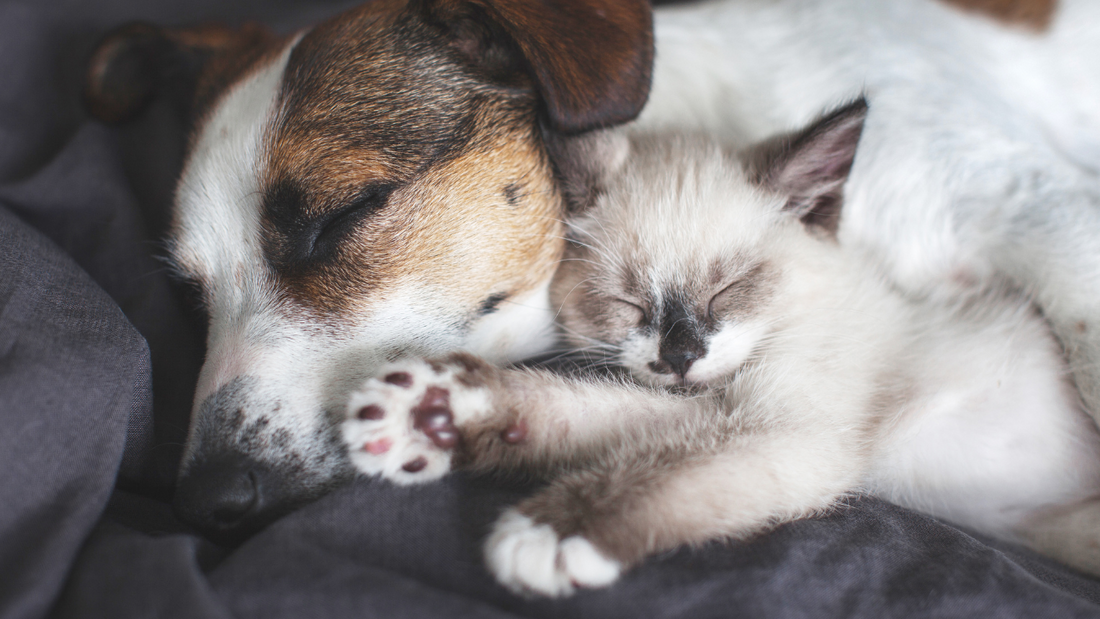
Eco-Friendly Cleaning Solutions for Your Furry Friends
As pet owners, ensuring the health and happiness of our furry family members is a top priority. Using natural cleaning methods for their belongings not only contributes to their well-being but also protects the environment.
In this blog, we'll explore various natural options for cleaning pet bedding, toys, bowls, and more, ensuring your home remains safe and fresh without the use of harsh chemicals.
1. Cleaning Pet Bedding
Natural Solution: Baking Soda and Vinegar Pet bedding can harbor bacteria and odors, so regular cleaning is essential. For a natural clean, sprinkle baking soda on the bedding and let it sit for at least an hour or overnight for deeper odors. Vacuum it up to remove the baking soda along with loosened dirt and odors. For stains, spray a mixture of equal parts white vinegar and water on the bedding, then wash it in the washing machine using a gentle, natural detergent.
2. Sanitizing Pet Toys
Natural Solution: Vinegar Soak Toys, especially those that your pets chew, need regular cleaning to prevent the buildup of germs. For hard toys, create a cleaning soak with one part white vinegar to three parts water. Let the toys soak for about 30 minutes, then scrub them with a brush to remove any residue. For plush toys, sprinkle with baking soda, allow it to sit, then vacuum it off or put them in the washing machine with a vinegar rinse in the fabric softener compartment.
3. Washing Pet Bowls
Natural Solution: Lemon and Salt Scrub Pet bowls should be washed regularly to prevent bacterial growth. For a thorough clean, use a scrub made from lemon juice and salt. The acidity of the lemon combined with the abrasiveness of the salt effectively removes leftover food and kills bacteria. Rinse the bowls well with hot water to ensure all cleaning residue is removed.
4. Deodorizing Pet Areas
Natural Solution: Essential Oil Sprays Areas where pets spend a lot of time can start to smell less than fresh. To naturally deodorize these spaces, mix distilled water* with a few drops of your favorite essential oil (lavender or eucalyptus are great choices) in a spray bottle. Use this spray on pet bedding, carpets, and any fabric-covered areas. Always ensure that the essential oils used are safe for pets.
5. Cleaning Pet Carriers
Natural Solution: Soap Nuts For a natural deep clean of pet carriers, use soap nuts, which are a natural cleaner with saponin, a soap-like chemical. Place a few soap nuts in a cotton bag and run them through a washing cycle with the carrier (if it is fabric-based) or use a soap nut solution to scrub down hard carriers. This method will effectively clean and deodorize the carriers without harsh chemicals.
6. General Pet Area Cleaning
Natural Solution: Hydrogen Peroxide and Essential Oils Solution For a safe and effective way to clean pet areas, create a solution combining hydrogen peroxide, distilled water*, and a few drops of pet-safe essential oils like lavender or chamomile. Hydrogen peroxide acts as a natural disinfectant, while the essential oils provide a calming scent that is pleasant and relaxing for both pets and humans.
Mix one part hydrogen peroxide with two parts distilled water* and add up to 10 drops of essential oil in a spray bottle. This mixture can be used on floors, pet crates, and other surfaces to sanitize and freshen up the area.
Conclusion
Switching to natural cleaning solutions for your pet care routine not only ensures that your pets are safe from harmful chemicals but also promotes a healthier environment. By adopting these simple, eco-friendly methods, you can keep your pet's belongings clean and fresh the natural way. Remember, always double-check the safety of any natural product or ingredient to ensure it's suitable for your specific pet, as sensitivities can vary widely.
*Water is a common ingredient in many DIY products, but it's important to use it safely to prevent bacterial growth and contamination. If you're making homemade products like lotions, sprays, or cleaners, always use distilled or boiled water to reduce the risk of introducing harmful microorganisms. Additionally, be aware that water-based products have a shorter shelf life, so make them in small batches and store them in the refrigerator to extend their usability.



